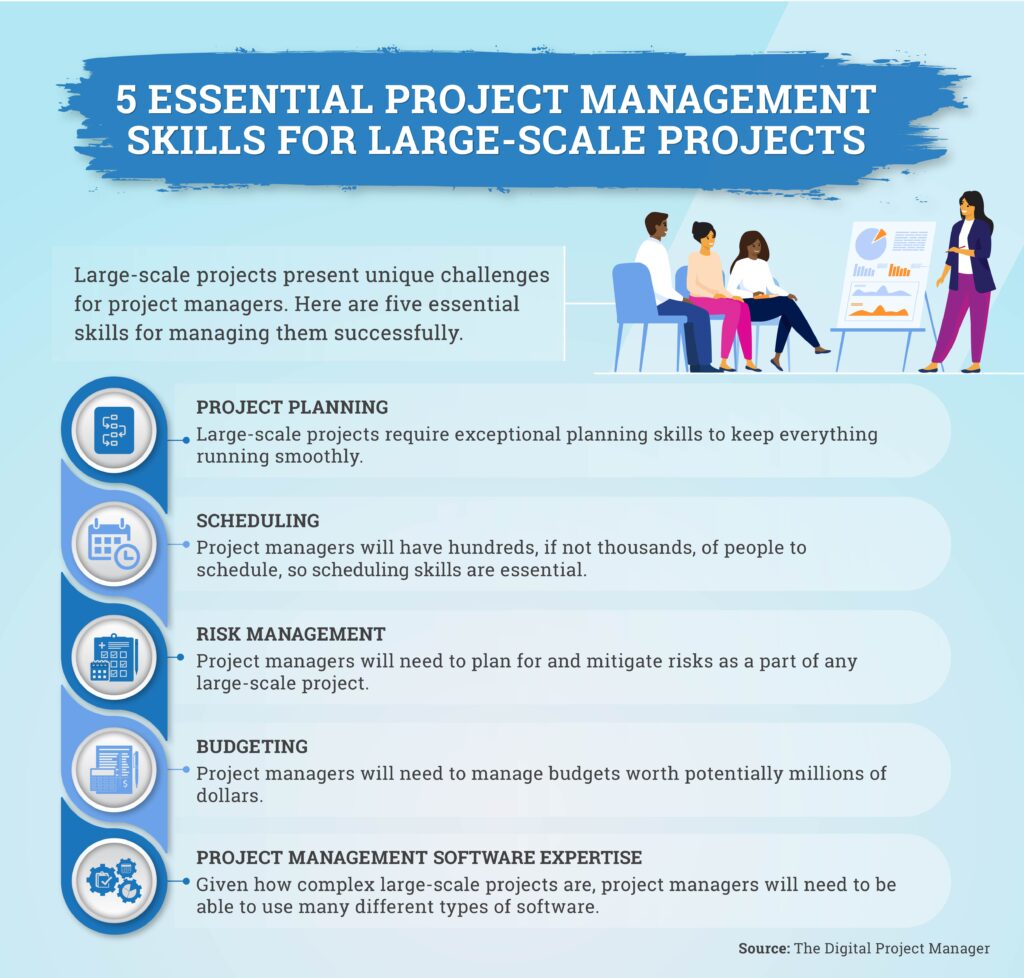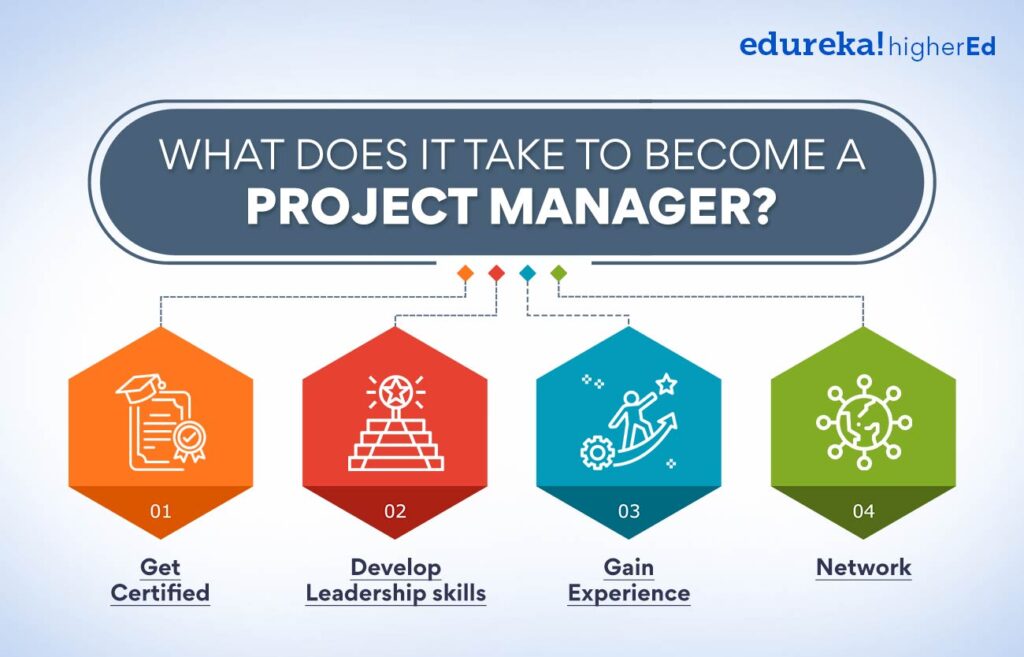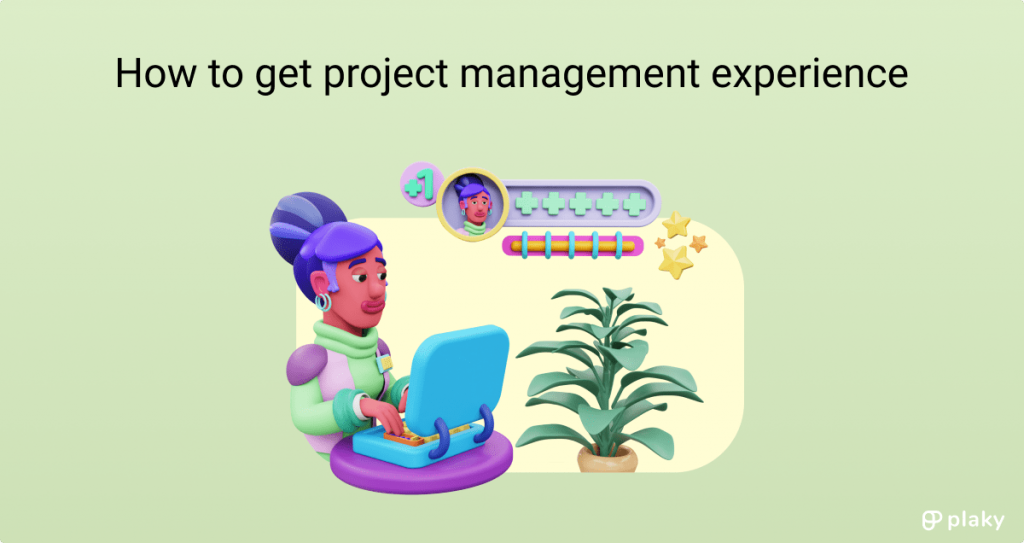
Have you ever wondered how to gain valuable project management experience? In this article, we will explore several effective strategies that can help you get your foot in the door and build a strong foundation in project management. Whether you are just starting out in your career or looking to transition into a new field, these tips and techniques will provide you with the necessary skills and knowledge to excel in project management. From volunteering and internships to pursuing professional certifications and joining industry associations, there are numerous avenues available to gain practical experience and enhance your resume. So, let’s get started on your journey to becoming a skilled project manager!
Start with Volunteer Work
Join Nonprofit Organizations
Volunteering with nonprofit organizations is an excellent way to gain project management experience. Many nonprofits are in constant need of volunteers to assist with various projects and initiatives. By joining such organizations, you not only contribute to a good cause but also have the opportunity to learn and grow as a project manager. Nonprofits often have limited resources and require individuals who can effectively manage tasks within tight budgets and timelines.
Offer to Manage Small Projects
Once you have become involved with a nonprofit organization, offer to manage small projects. This will not only showcase your organizational and leadership skills but also allow you to apply project management principles in a practical setting. Managing small projects will help you understand the intricacies of handling timelines, budgets, and resources while ensuring successful project completion.
Seek Opportunities within Your Company
If you are currently employed, seek project management opportunities within your company. Talk to your supervisors or managers about your interest in gaining project management experience and express your willingness to take on additional responsibilities. Look for small projects or initiatives within your department that you could manage or assist with. By showcasing your commitment and enthusiasm, you may be given the chance to work on larger projects or even transition into a project management role.
Take on Leadership Roles

Lead a Team or Committee
To gain project management experience, consider taking on leadership roles where you can oversee a team or committee. Leading a team will provide you with valuable experience in managing people, allocating tasks, and ensuring effective collaboration. This experience will help you develop crucial skills such as communication, conflict resolution, and team motivation, which are essential for successful project management.
Volunteer for Project Management Tasks
Within your current job or any other professional setting, volunteer for project management tasks whenever possible. Even if you are not officially designated as a project manager, you can still offer your assistance in coordinating and organizing projects. By actively seeking out project management tasks, you demonstrate your initiative and willingness to contribute beyond your assigned role. This hands-on experience will help you gain a deeper understanding of project management processes and develop your skills further.
Coordinate and Organize Events
Another great way to gain project management experience is to coordinate and organize events. Whether it’s a company-sponsored event, a charity fundraiser, or a community gathering, event planning involves many aspects of project management. From defining objectives and setting budgets to managing timelines and resources, organizing events allows you to exercise your project management skills in a practical and tangible manner. Volunteer for event planning committees or take the lead in organizing small events within your community to gain valuable hands-on experience.
Pursue Professional Certifications

Research Project Management Certifications
To establish yourself as a credible and competent project manager, it is essential to pursue professional certifications. Start by researching project management certifications available in your industry and identify those that align with your career goals. Look for certifications that are recognized and respected within the project management community, as this will enhance your credibility and job prospects.
Choose the Right Certification for Your Goals
After conducting thorough research, choose the certification that best suits your goals and aspirations as a project manager. There are several project management certifications available, such as Project Management Professional (PMP), Certified Associate in Project Management (CAPM), and Agile Certified Practitioner (ACP), among others. Consider the requirements, eligibility criteria, and the knowledge areas covered by each certification before making your decision.
Prepare and Study for the Certification Exam
Once you have chosen the certification, it’s time to prepare and study for the exam. Utilize reputable study resources, such as books, online courses, and practice exams, to familiarize yourself with the exam content and structure. Set aside dedicated study time and create a study plan to ensure you cover all the necessary topics. Additionally, consider joining study groups or seeking guidance from experienced project managers who have already obtained the certification. By thoroughly preparing for the exam, you increase your chances of passing and gaining a valuable project management certification.
Join Project Management Organizations

Find Local or International Associations
Joining project management organizations can provide you with numerous opportunities to network, learn, and gain project management experience. Look out for both local and international associations dedicated to project management. These organizations often hold regular meetings, conferences, and workshops that offer valuable insights and opportunities for professional growth. By becoming a member, you gain access to a network of experienced project managers who can provide guidance and mentorship, as well as potential job opportunities.
Attend Networking Events and Conferences
Once you have joined a project management organization, make an effort to attend networking events and conferences. These events bring together professionals from various industries and levels of expertise, providing a fertile ground for learning and expanding your professional network. Engage in conversations, participate in panel discussions, and attend workshops and sessions relevant to your interests. Actively seeking opportunities to connect with others in the field can lead to valuable connections, potential job opportunities, and a deeper understanding of project management trends and best practices.
Participate in Online Communities and Forums
In addition to attending physical events, participating in online project management communities and forums can also contribute to your professional growth and experience. These online platforms provide a space for project managers to connect, share insights, ask questions, and seek advice. Actively engage in discussions, contribute your knowledge, and learn from others’ experiences. Online communities and forums are an excellent way to stay updated with industry trends, gain practical knowledge, and seek guidance whenever needed.
Offer to Assist Experienced Project Managers

Seek Mentorship Opportunities
One of the most effective ways to gain project management experience is by seeking mentorship from experienced project managers. Look for opportunities within your organization or professional network to connect with seasoned professionals who can provide guidance and advice. A mentor can share their expertise, share real-life project experiences, and offer valuable insights that can help you navigate your own projects more effectively. Be proactive in seeking mentorship and approach potential mentors with a genuine interest in learning from their expertise.
Offer Support in Planning and Execution
Once you have established a mentorship relationship, offer your assistance to experienced project managers in planning and executing their projects. By actively participating in their projects, you gain hands-on experience while contributing to their success. Assist with tasks such as creating project plans, managing timelines, monitoring progress, and identifying and mitigating risks. This experience not only helps you enhance your project management skills but also strengthens your professional relationship with your mentor.
Learn from Their Expertise and Guidance
While working with experienced project managers, make a conscious effort to learn from their expertise and guidance. Observe their decision-making processes, communication strategies, and problem-solving techniques. Ask questions and seek explanations for key project management concepts and methodologies. By actively absorbing their knowledge and learning from their experiences, you can gain a wealth of practical insights that will benefit your own project management endeavors.
Actively Participate in Workshops and Training Programs

Attend Project Management Workshops
Attending project management workshops is a great way to enhance your project management skills and gain practical experience. Look for workshops in your area or online that cover various aspects of project management, such as planning, risk management, communication, and stakeholder engagement. Participating in these workshops will provide you with a structured learning environment and opportunities to apply your knowledge in real-life scenarios. It will also allow you to interact with industry experts and gain insights from their experiences.
Enroll in Project Management Training Courses
In addition to workshops, enrolling in project management training courses can provide you with comprehensive knowledge and skills required for successful project management. Look for reputable training providers who offer courses that align with your career goals and aspirations. These courses often cover essential project management methodologies, tools, and techniques. By completing a formal training course, you not only deepen your understanding of project management principles but also demonstrate your commitment to professional development.
Apply the Knowledge in Real-Life Project Scenarios
To make the most of your workshop or training experience, actively apply the knowledge gained to real-life project scenarios. Look for opportunities within your professional or personal life to lead or assist in managing projects. By immediately applying the concepts and techniques learned, you solidify your understanding and gain practical experience. Reflect on the outcomes and challenges faced during these projects, identify areas for improvement, and continuously refine your project management skills.
Take on Freelance or Side Projects
Offer Your Project Management Services
Consider offering your project management services on a freelance or side project basis. Many small businesses and entrepreneurs lack dedicated project managers but still require assistance in effectively managing their projects. Identify industries or sectors where your expertise aligns, and reach out to individuals or organizations that may benefit from your project management skills. Offer to assist with project planning, budgeting, resource allocation, and project monitoring. Taking on freelance or side projects not only enhances your practical experience but also allows you to work on a variety of projects in different industries, broadening your knowledge base.
Network with Potential Clients
Building a strong professional network is crucial when seeking freelance or side project opportunities. Attend networking events, connect with professionals in your industry, and leverage online platforms such as LinkedIn to expand your network. Regularly update your online profiles to showcase your project management expertise and highlight your achievements. By developing and maintaining strong relationships with potential clients, you increase your chances of securing freelance or side project opportunities.
Gain Experience in a Variety of Industries
By taking on freelance or side projects, you have the opportunity to gain experience in a variety of industries. Embrace projects from different sectors to broaden your knowledge, expand your skill set, and become a versatile project manager. Working in diverse industries will expose you to different project types, challenges, and stakeholders, enabling you to adapt and tailor your project management approach accordingly. This cross-industry experience will make you a more valuable asset as a project manager and provide you with a well-rounded skill set.
Create and Manage Your Own Projects
Identify Personal or Professional Projects
To gain hands-on project management experience, identify personal or professional projects that you can create and manage independently. These projects can be small in scale and can range from organizing events to pursuing personal hobbies or interests. By taking ownership of these projects, you have the opportunity to practice project management principles from start to finish. This includes defining project goals, creating project plans, allocating resources, monitoring progress, and evaluating outcomes.
Develop Project Plans and Objectives
Once you have identified a personal or professional project, develop a formal project plan outlining the objectives, timelines, resources, and deliverables. Break down the project into smaller tasks and establish dependencies and milestones. Ensure that your project plan is realistic and aligns with the overall goals of the project. Developing a comprehensive project plan allows you to stay organized, manage expectations, and track progress throughout the project’s lifecycle.
Execute and Monitor the Projects
Once your project plan is in place, it’s time to execute and monitor the projects. Assign tasks to yourself and any team members or resources involved. Monitor progress regularly, identify potential risks or challenges, and take corrective actions as necessary. Actively communicate with stakeholders, share updates, and seek feedback to ensure alignment with project objectives. By effectively executing and monitoring your projects, you demonstrate your ability to successfully manage projects independently.
Document and Showcase Your Project Management Experience
Maintain a Record of Your Projects
Throughout your journey of gaining project management experience, maintain a record of all the projects you have been involved in. Document project details such as objectives, timelines, budgets, your role, and key achievements. This record serves as a valuable reference for future job applications, interviews, and professional discussions. It showcases your practical experience and demonstrates your dedication to continuous learning and improvement.
Highlight Key Achievements and Responsibilities
When documenting your project management experience, emphasize your key achievements and responsibilities in each project. Focus on the tangible outcomes, such as successfully meeting project goals, managing budgets effectively, and delivering projects within timelines. Quantify your achievements whenever possible, such as stating the percentage of cost savings achieved or the number of team members you effectively managed. Highlighting your accomplishments demonstrates your ability to produce real results and adds credibility to your project management experience.
Update Your Resume and Online Profiles
Ensure that you update your resume and online profiles, such as LinkedIn, to showcase your project management experience effectively. Tailor your resume to highlight your project management responsibilities and achievements. Incorporate relevant project management keywords and industry-specific terminology to increase your chances of being noticed by potential employers or clients. Regularly update your online profiles with details of your project management experience, certifications, and any additional training or ongoing learning activities. A well-curated resume and online presence will attract the attention of hiring managers and project management professionals.
Seek Internship or Entry-Level Positions
Apply for Project Coordinator or Assistant Roles
To kick-start your project management career, consider applying for internship or entry-level positions in project coordinator or assistant roles. These positions provide valuable hands-on experience in project management under the guidance of experienced professionals. As a project coordinator or assistant, you will have the opportunity to learn and contribute to various aspects of project management, such as planning, scheduling, and risk management. While these roles may be entry-level, they serve as a springboard for future career growth in project management.
Gain Practical Experience in Project Environments
Working as a project coordinator or assistant allows you to gain practical experience in project environments. You will become familiar with project management methodologies, tools, and software commonly used in the industry. Moreover, you will gain a deeper understanding of the dynamics of projects, including stakeholder management, team coordination, and project documentation. Embrace the learning opportunities offered by these roles and actively seek responsibilities that allow you to apply your project management knowledge and skills.
Demonstrate Your Skills and Willingness to Learn
While working in internship or entry-level positions, it is crucial to demonstrate your project management skills and willingness to learn. Take initiative, ask questions, and actively contribute to project discussions and meetings. Show enthusiasm for taking on new challenges and showcase your ability to adapt to changing project requirements. By consistently demonstrating your skills and eagerness to grow as a project manager, you increase your chances of being entrusted with more responsibilities and eventually progressing in your project management career.
By following these strategies to gain project management experience, you can pave the way for a successful career in the field. From volunteering and taking on leadership roles to pursuing professional certifications and seeking mentorship, each step offers valuable opportunities for growth and development. Embrace these experiences, continuously seek new learning opportunities, and showcase your achievements to establish yourself as a competent and well-rounded project manager. Remember, the journey to gaining project management experience is an ongoing process, and each experience contributes to your professional growth and expertise. So get started on your project management journey and watch your career soar!







